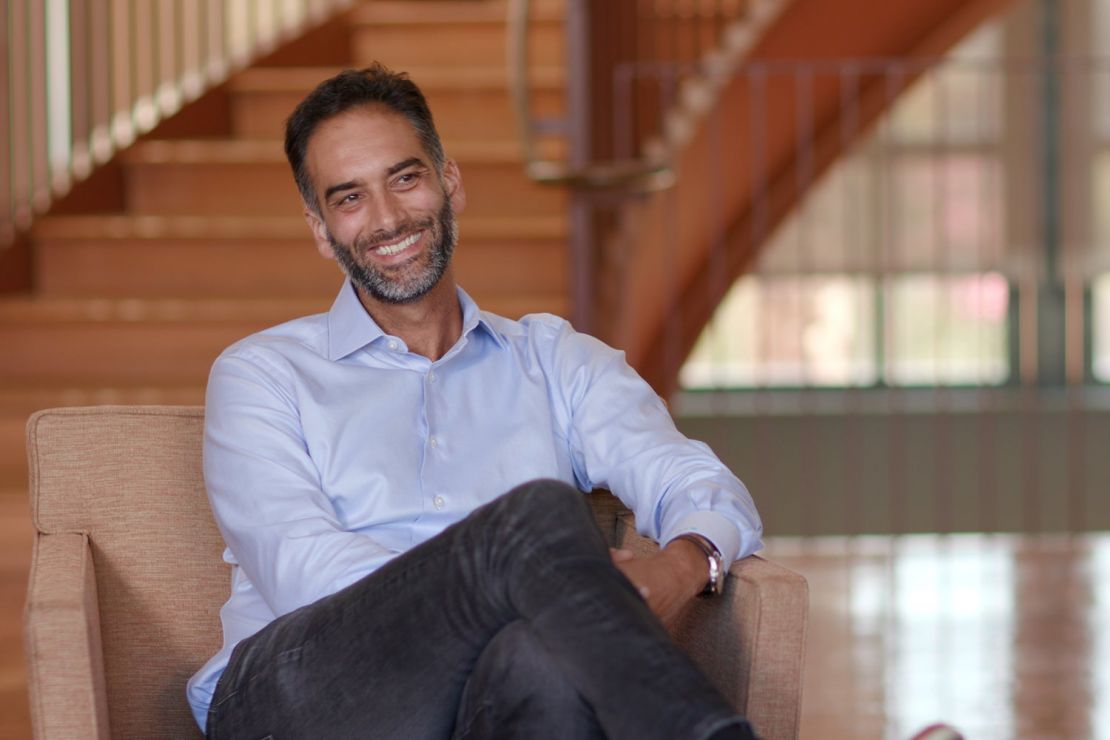Stanford economist Neale Mahoney has been named the next director of the Stanford Institute for Economic Policy Research (SIEPR), a policy institute under the vice provost and dean of research that supports research and scholars focused on improving economic policies in the United States and abroad. Mahoney, the George P. Shultz Fellow at SIEPR and a professor in the Department of Economics in the School of Humanities and Sciences, will begin his term on Jan. 1, 2025, and will hold the directorship endowed by Victor Trione, a philanthropist and founder of Luther Burbank Savings.
“Neale is a superb scholar with an impressive track record of research, and he’s been a trusted advisor to the federal government on a broad set of economic policy issues,” said David Studdert, vice provost and dean of research. “He has had close ties to SIEPR for many years – first as a PhD student and more recently as a Stanford faculty member. The institute’s faculty, students, staff, and supporters will have in Neale a wonderful champion for their ideas and aspirations.”
Mark Duggan, SIEPR’s current director, will step down from the role on Aug. 31, 2024. Mahoney will commence his directorship duties in January after completing a long-planned sabbatical. Greg Rosston, SIEPR’s Gordon Cain Senior Fellow and director of Stanford’s Public Policy Program, will serve as interim director in the fall to support the transition. Starting this summer, all three leaders will begin working closely together, planning and exploring opportunities for the coming year.
“It’s an honor to lead an institution that I have so much respect for,” Mahoney said. “I’m looking forward to developing SIEPR’s ability to strengthen connections between the academic and policy worlds, provide inspiration and mentorship to so many students, and convene the brightest minds in economic policy to address some of our most pressing economic challenges. I’m grateful for all the work Mark Duggan and the previous SIEPR directors have done to build the institution, and I’m eager to build on their success.”
A search committee co-chaired by Rosston and Graduate School of Business Dean Jonathan Levin conducted an international search, which included extensive outreach to stakeholders seeking input on the future of SIEPR and the essential leadership and academic characteristics of the next director. The committee forwarded recommended candidates to Studdert, who made the appointment in consultation with the provost.
“I am grateful to Mark for his visionary leadership over the past nine years. In that time, he has developed a number of exciting new programs, tirelessly supported faculty, and spearheaded SIEPR’s student programs, including the launch of the predoctoral research fellowship,” continued Studdert. “I also want to thank Greg Rosston for stepping in as the interim director to facilitate the handoff between Mark and Neale. Greg is a beloved figure in the SIEPR community, and his deep knowledge of the institute will ensure a smooth transition.”
An academic expert with policy experience
Mahoney is an expert on consumer financial markets, health care economics, and medical debt. He served on the National Economic Council as a special policy advisor to the White House between 2022 and 2023. His time in the Biden administration marked his second tour in federal government. From 2009 until 2010, he worked on health care reform under President Barack Obama. A year later, he earned his PhD in economics from Stanford.
An applied micro-economist who was an economics professor at the University of Chicago Booth School of Business before joining the Stanford faculty in 2020, Mahoney was awarded the ASHEcon Medal in 2021 – given to an economist age 40 or under who has made the most significant contributions to the field of health economics – and a Sloan Research Fellowship in 2016.
“I couldn’t think of a better person to take the helm of SIEPR than Neale Mahoney,” said Duggan, who started his role as SIEPR director on Sept. 1, 2015. “Along with his tremendous scholarship, Neale also has a ton of invaluable economic policy experience that will help him continue SIEPR’s mission of connecting research with government officials.”
Bridging economic research with policy and practice
Since 1982, SIEPR has been Stanford’s home for economic policy research. SIEPR supports roughly 120 affiliated faculty from each of Stanford’s seven schools and provides learning and mentorship opportunities for undergraduate research assistants, predoctoral fellows, and graduate fellows.
Many SIEPR scholars advise policymakers, serve in government, and promote deep engagement between academia and the policy world.
The institute hosts early career economists for a one- or two-year residence that encourages collaboration and engagement with Stanford scholars and regularly convenes leaders from government and industry. The annual SIEPR Economic Summit – held each March – has attracted former presidential cabinet members, CEOs of Fortune 500 companies, and leaders of the Federal Reserve Bank.
SIEPR also launched the California Policy Research Initiative (CAPRI), which focuses on the state’s economic policies and strengthens the pipeline between Stanford research and lawmakers and government officials in Sacramento.
